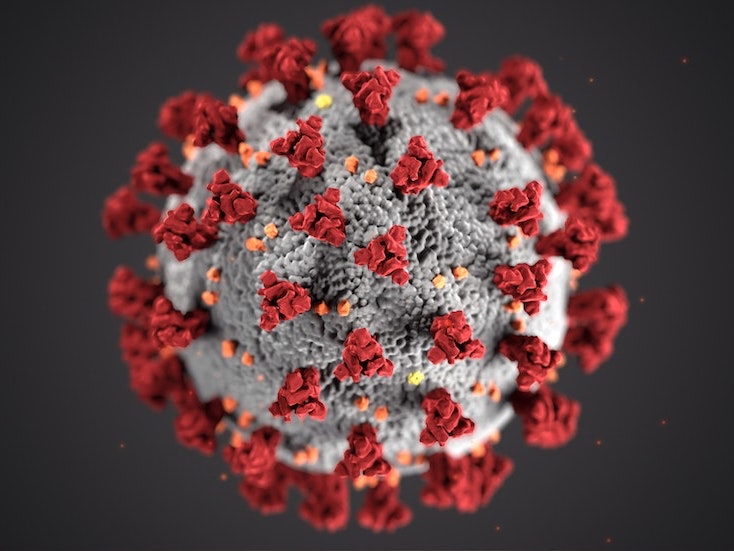COVID-19 RESPONSE
Rock River Valley Blood Center is monitoring the outbreak of COVID-19. We are providing the following information to keep our donors, staff, volunteers, and the hospitals we serve up to date on the latest developments about COVID-19 and its impact on the community blood supply.
COVID-19 RESPONSE
Rock River Valley Blood Center is monitoring the outbreak of COVID-19. We are providing the following information to keep our donors, staff, volunteers, and the hospitals we serve up to date on the latest developments about COVID-19 and its impact on the community blood supply.

Individuals who received the vaccine for COVID-19 are eligible to donate blood.
FDA Changes (updated April 6, 2020)
We, along with America’s Blood Centers, are commending the FDA for their support during the unprecedented COVID-19 pandemic. The FDA recently announced changes regarding eligibility of certain previously deferred donors.
Those changes include shortened deferral periods for individuals at higher risk of HIV, including men who have sex with men (MSM), and individuals receiving recent blood transfusions, accidental blood exposures, tattoos and piercings. The FDA also finalized guidance on Creutzfeldt–Jakob disease (CJD) and variant CJD which will make eligible individuals who spent time in numerous European countries or on military bases in Europe.
We are actively working to implement the FDA-announced changes. This will take time as we work diligently to modify our protocols and computer systems, which must be done in a controlled manner in accordance with good manufacturing practices, and train our staff.
We appreciate your patience during this time, and we will continue to provide updates as often as we can. Thank you for working with our community save lives!
Blood Center Response to COVID-19
As you may have heard, we’ve been sounding the alarm about the dire need for blood donations during the rapidly developing national situation related to COVID-19 (coronavirus).
Locally, we have lost more than 3,000 units of blood because of cancelled mobile blood drives, and the number continues to increase as businesses remain closed or unwilling to sponsor on-site drives.
Our community has been responding, and we are grateful for that. We want to take this time to update you on actions we’ve taken to ensure donor and staff safety in our facilities.
- First off, anyone feeling healthy and well must first schedule an appointment to donate blood. Scheduled appointments will help us minimize crowds at our facilities and manage the flow of donors so we can follow federal guidelines on social distancing.
- Please also consider scheduling your donation in the coming days or weeks. This is expected to be an ongoing crisis, and we need to maintain a constant local blood supply. Blood has a short shelf life (42 days for whole blood and five days for platelets), and it’s the blood already on the shelves that saves lives.
- We have launched a program called QuickPass that allows you to answer your donor questions on the same day of your appointment. Doing so can reduce your donation time and time spent in our donor centers.
- Our facilities already follow strict guidelines on quality and cleanliness, and we have taken additional steps to adhere to federal requirements. We have moved our donation beds, chairs in our waiting areas and canteen/snack stations further apart. We are also wiping down stations between donations.
- Only healthy people should attempt to donate. Please stay home or cancel your appointment if you don’t feel well or if you have any COVID-19 symptoms (fever, cough or shortness of breath). Health screening is already part of the donation process, and our staff members are also taking their own temperatures to ensure they can keep working.
Again, we ask for your patience and flexibility when scheduling an appointment. We appreciate your consideration and your dedication to helping us save lives.
Additional Information
- There is no known risk to the safety of the nation’s blood supply, and there are no reports of spread of this or any respiratory virus by blood transfusion.
- Giving blood is not a risk for donors to contract COVID-19.
- Misinformation will negatively impact the blood supply (e. if donors refrain from blood donation because of fear of contracting the virus).
- To prevent the spread of COVID-19, influenza, and other viral infections, we join the Centers for Disease Control (CDC) in recommending the following common-sense measures:
- Wash hands frequently with soap and water or use an alcohol-based hand sanitizer, and avoid hand-to-face contact, a primary mechanism of transmission.
- Clean work surfaces in accordance with established infection control procedures.
- Avoid close contact (within about 6 feet) with those who are ill.
- Self-quarantine after caring for someone who is sick.
- Stay home when experiencing symptoms of illness.
- Use good cough etiquette: cover your mouth and nose when coughing or sneezing, and avoid touching your eyes, nose, and mouth.
AABB Interorganizational Task Force
As the COVID-19 outbreak continues, the AABB Interorganizational Task Force on Domestic Disasters and Acts of Terrorism is urging individuals to make and keep donation appointments and organized blood drives to ensure the continued adequacy of the blood supply.
Are Blood Centers Testing Donations for COVID-19?
We are not performing screening tests for COVID-19. All donors are screened for symptoms of illness prior to donation. For questions about COVID-19 testing, please call the Winnebago County Health Department at 815-319-6705 or visit the health department’s website.
- In our pre-donation medical history questionnaire, we ask “Are you feeling healthy and well today?”
- In our pre-donation mini-physical, we assess the donor’s body temperature, blood pressure, heart rate, and hemoglobin level.
Donors who aren’t feeling well or exhibit symptoms of respiratory illness are deferred from donation.
FDA Urges People to Donate Blood as Coronavirus Fears Intensify
For Additional Information
Illinois Department of Public Health

